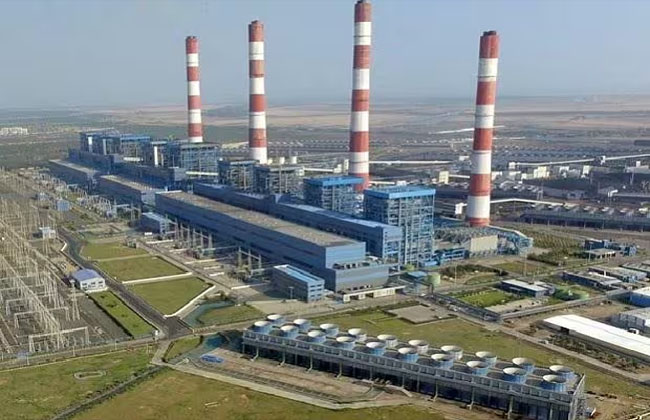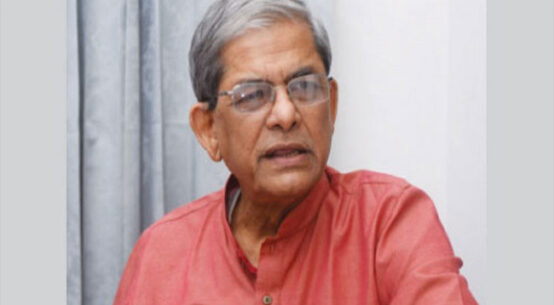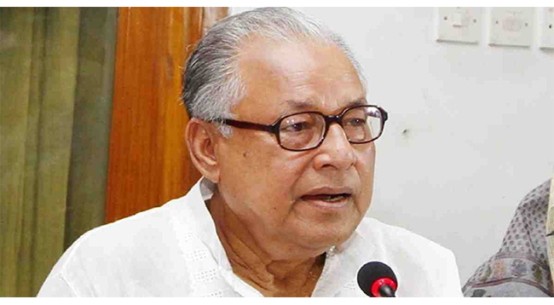
The much-talked-about electricity import from Indian energy giant Adani Power Limited from its coal-fired power plant in Jharkhand, India to Bangladesh has caused trepidation over the country’s ties with the conglomerate and triggered consternation among the opposition and civil society.
To the surprise of many, the officials of the power ministry announced that Adani’s Godda power plant began its test transmission on 9 March, supplying (+/-) 50 MW to Bangladesh.
Adani Power Limited (APL), the largest private thermal power producer in India, has commissioned its first 800 MW ultra-super-critical thermal power generation unit at Godda in the Jharkhand district and has begun supplying 748 MW of power to Bangladesh from 9 April.
The electricity supplied from Godda will significantly improve the situation in the neighbouring country as it will replace expensive power generated from liquid fuel, bringing down the average cost of power purchased.
The purchase of electricity from the Indian plant began amid raised eyebrows by the civil society groups, energy analysts and the mainstream media both in Bangladesh and India with its numerous provisions, which they dispute, the power purchase was against ‘public policy’.
Critics argued that the 163-page deal has extended undue financial benefits to the Adani Group and energy analysts and economists have dubbed it discriminatory to Bangladesh.
The announcement of test transmission has poured cold water on the opposition Bangladesh Nationalist Party (BNP) and critics demand to scrap the controversial power import deal with the Adani Group.
Under the Power Purchasing Agreement (PPA), Bangladesh will pay $450 million annually for 25 years as capacity and maintenance charges, even when there is no power supply from Adani Power Ltd.
Bangladesh is facing a severe power crisis after oil-based power plants were shut down under government orders due to the spiralling price of imports of crude oil, coupled with a foreign currency crunch in the wake of the Ukraine war.
Prime Minister Sheikh Hasina’s government issued a strict guideline to cut power consumption in commercial establishments and began intermittent load-shedding in the capital Dhaka and elsewhere in the country.
With the newly built coal-fired power plants from the Indian-built Rampal, Chinese-built Payra power stations and electricity import from Jharkhand will significantly augment power supply in the crucial summer season, especially for irrigation and export industries.
The dedicated transmission line from Jharkhand would bring power to the northern part of Bangladesh, which is not an industrialised region.
Of course, charismatic Sheikh Hasina is luring industrialists to invest in northern Bangladesh and her government is investing in mega infrastructure development including roads, railways and an ambitious nuclear power plant with the assistance of the Russians.
An independent newspaper the Daily Star reported that a 2017 lopsided deal between the Bangladesh Power Development Board (BPDB) and the Adani group, which included a contract to build a coal-based power plant in Jharkhand to supply power to Bangladesh.
It was estimated that Adani is going to save as much as USD 1 billion, thanks to it being declared a Special Economic Zone as part of the agreement.
Bangladesh is bound to honour the agreement and have to pay extra for manipulation of the purchase of coal from the rising world market.
The Washington Post, the prestigious US daily in a report calculated that Adani would save $35 million a year on its coal imports for the Godda plant because of the tax exemptions. Usually, the coal import tax is IRS 400, or about $5, a tonne.
In another stage, the group’s Chairman Gautam Adani is no longer the world’s 25 richest people and his net worth fell below $43.4 billion on February 22, according to Forbes and Bloomberg indices.
However, Adani Group in a statement does not agree that the agreement with BPDB was unequal and claims that the power sold to Bangladesh will be more competitive than the costs of other coal-fired power plants in the country.
The per unit cost of electricity would be US 9.39 cents and capacity charge US 4.24 cents and Bangladesh will pay BDT 15 (IRS 11.73), the statement said.
The Adani Group told BBC News that Bangladesh did not request for review of the power deal.
State Minister for Foreign Affairs Shahriar Alam told Indian media that the $4.5 billion Adani Power Project is an “important” one for Bangladesh and the government has “no issues” with the Indian conglomerate.


